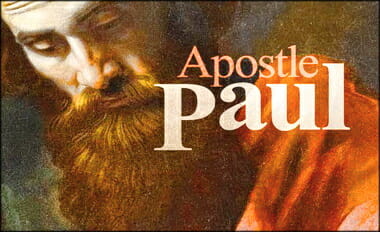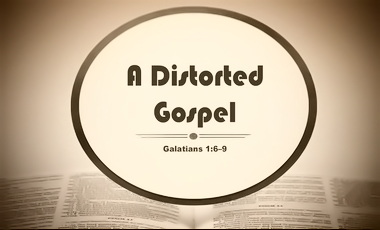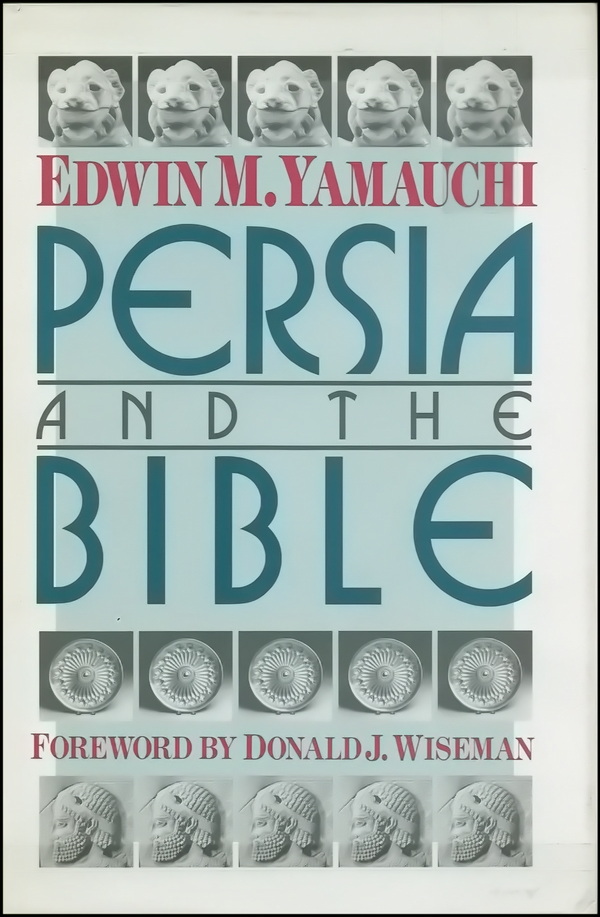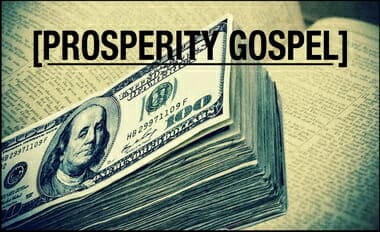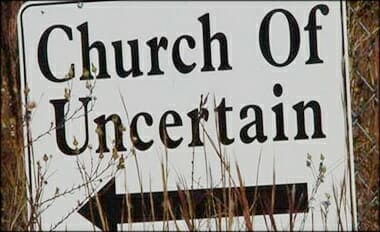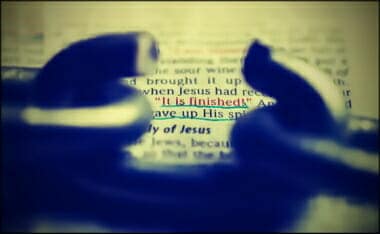If the Christian make full use of his Christian privileges, he finds the seat of authority in the whole Bible, which he regards as no mere word of man but as the very Word of God. Very different is the view of modern liberalism. The modern liberal rejects not only the doctrine of plenary inspiration but even such respect for the Bible as would be proper over against any ordinarily trustworthy book. But what is substituted for the Christian view of the Bible? What is the liberal view as to the seat of authority in religion?
The impression is sometimes produced that the modern liberal substitutes for the authority of the Bible the authority of Christ. He cannot accept, he says, what he regards as the perverse moral teaching of the Old Testament or the sophistical arguments of Paul. But he regards himself as being the true Christian because, rejecting the rest of the Bible, he depends upon Jesus alone.
This impression, however, is utterly false. The modern liberal does not really hold to the authority of Jesus. Even if he did so, indeed, he would still be impoverishing greatly his knowledge of God and of the way of salvation.
The words of Jesus, spoken during His earthly ministry, could hardly contain all that we need to know about God and about the way of salvation; for the meaning of Jesus’ redeeming work could hardly be fully set forth before that work was done. It could be set forth indeed by way of prophecy, and as a matter of fact, it was so set forth by Jesus even in the days of His flesh. But the full explanation could naturally be given only after the work was done. And such was actually the divine method. It is doing despite, not only to the Spirit of God but also to Jesus Himself, to regard the teaching of the Holy Spirit, given through the apostles, as at all inferior in authority to the teaching of Jesus.
As a matter of fact, however, the modern liberal does not hold fast even to the authority of Jesus. Certainly, he does not accept the words of Jesus as they are recorded in the Gospels. For among the recorded words of Jesus are to be found just those things which are most abhorrent to the modern liberal Church, and in His recorded words Jesus also points forward to the fuller revelation which was afterwards to be given through His apostles. Evidently, therefore, those words of Jesus which are to be regarded as authoritative by modern liberalism must first be selected from the mass of the recorded words by a critical process. The critical process is certainly very difficult, and the suspicion often arises that the critic is retaining as genuine words of the historical Jesus only those words which conform to his own preconceived ideas. But even after the sifting process has been completed, the liberal scholar is still unable to accept as authoritative all the sayings of Jesus; he must finally admit that even the “historical” Jesus as reconstructed by modern historians said some things that are untrue.
So much is usually admitted. But, it is maintained, although not everything that Jesus said is true, His central “life-purpose” is still to be regarded as regulative for the Church. But what then was the life-purpose of Jesus? According to the shortest, and if modern criticism be accepted, the earliest of the Gospels, the Son of Man “came not to be ministered unto, but to minister, and to give his life a ransom for many” (Mk. 10:45). Here the vicarious death is put as the “life-purpose” of Jesus. Such an utterance must, of course, be pushed aside by the modern liberal Church.
The truth is that the life-purpose of Jesus discovered by modern liberalism is not the life-purpose of the real Jesus, but merely represents those elements in the teaching of Jesus—isolated and misinterpreted—which happen to agree with the modern program. It is not Jesus, then, who is the real authority, but the modern principle by which the selection within Jesus’ recorded teaching has been made. Certain isolated ethical principles of the Sermon on the Mount are accepted, not at all because they are teachings of Jesus, but because they agree with modern ideas.
It is not true at all, then, that modern liberalism is based upon the authority of Jesus. It is obliged to reject a vast deal that is absolutely essential in Jesus’ example and teaching—notably His consciousness of being the heavenly Messiah. The real authority, for liberalism, can only be “the Christian consciousness” or “Christian experience.” But how shall the findings of the Christian consciousness be established? Surely not by a majority vote of the organized Church. Such a method would obviously do away with all liberty of conscience. The only authority, then, can be individual experience; truth can only be that which “helps” the individual man. Such an authority is obviously no authority at all; for individual experience is endlessly diverse, and when once truth is regarded only as that which works at any particular time, it ceases to be truth. The result is an abysmal skepticism.
The Christian man, on the other hand, finds in the Bible the very Word of God. Let it not be said that dependence upon a book is a dead or an artificial thing. The Reformation of the sixteenth century was founded upon the authority of the Bible, yet it set the world aflame. Dependence upon a word of man would be slavish, but dependence upon God’s word is life. Dark and gloomy would be the world, if we were left to our own devices, and had no blessed Word of God. The Bible, to the Christian, is not a burdensome law, but the very Magna Charta of Christian liberty.
It is no wonder, then, that liberalism is totally different from Christianity, for the foundation is different. Christianity is founded upon the Bible. It bases upon the Bible both its thinking and its life. Liberalism, on the other hand, is founded upon the shifting emotions of sinful men.
J. Gresham Machen, Christianity and Liberalism (Grand Rapids: Eerdmans, 1923), 64-66. (FREE HERE)
(PRINCE ON PREACHING)
